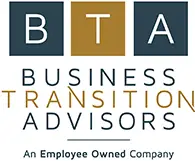By: Darren Dahl
Source: Forbes
There’s an increasing amount of talk about the coming of the so-called “Silver Tsunami,” where thousands of businesses owned by Baby Boomers across the country will soon face a test of succession. One of the options those owners can consider is selling the business to their employees, rather than to an investor or competitor, as a way to help preserve the culture and legacy they would be leaving behind.
But you don’t have to be near retirement to consider making your employees owners in your business. For some entrepreneurs, selling their business to an ESOP can actually be part of a long-term growth strategy.
At least that was Shawn Burcham’s mindset when he and his wife Julie sold 100% of their business, PFSbrands in Holts Summit, MO, to their employees in January 2017. “I’m in my mid-40s and plan to stay at the company for the long haul,” says Burcham. “I will remain as CEO and continue to work with the senior leadership team and all of our employee owners to scale the company.”
And if Burcham’s vision for what his company could become – think Subway or even Starbucks – those new employee owners could be in a for a wild and wealthy ride. “Our opportunity is limitless,” says Burcham. “We could continue to grow at a double-digit pace for 30 to 40 years, maybe beyond that. But we’re going to need everyone’s commitment here to scale like that.”
The Burchams founded the business in 1998, which now provides turnkey, branded hot-food programs to more than 1,000 grocers and convenience stores across 36 states. It was originally a small business based in their house that distributed equipment, chicken breading, oil, and packaging to retailers in Missouri. But the business soon began to grow, as Burcham saw an opportunity to distribute other products like poultry items and side items to retailers offering “hot bars” in their stores.
The business has evolved further since, where it’s now based out of a 65,000 sq. ft. corporate headquarters and warehouse with 65 different wholesale distribution points across the country. Those wholesalers ship a full product line – everything from proteins like poultry to sides like mac and cheese – sold under the PFSbrands, Champs Chicken, and Cooper’s Express labels. “We are a one-stop-shop if a retailer wants to get a prepared food program into their facility,” says Burcham.
Revenues topped $50 million in 2016 and the business plans to grow into a national and even international brand. The company’s flagship brand, Champs Chicken, is now offered as a true franchise opportunity for retailers – which speaks volumes to massive potential ahead of the 120 folks who are now employee co-owners in PFSbrands.
Burcham says that he has long been a proponent of growing a culture of “ownership thinking” in his business. He fueled that by embracing practices to empower his employees, such as open-book management, which he fully integrated into his company after being inspired by Jack Stack’s book, The Great Game Of Business. “I believe deeply in the value of educating employees about business and helping them think and act like owners,” he says. “But it doesn’t happen overnight.” One step he took years ago was to assign every general ledger code to someone in his company so each person could help in monitoring costs.”
Burcham also says that the process he planned for sharing ownership through an ESOP changed from when he first announced the concept to the employees two years ago. Originally he and his wife thought they would sell 10% a year over 10 years as a way to do it gradually. But when the state of Missouri passed legislation last year to give owners an incentive to sell to ESOPs through a capital gains tax break, Burcham figured it was too good of a deal to pass up on – especially since they already had the culture in place to make such a transition.
“By selling the business to our employees,” Burcham says, “we have created an opportunity for our employees to no longer just ‘think like owners,’ but to become the actual owners. As employee co-owners, the members of our team will become even more motivated, more committed, and more accountable to each other to drive growth and profitability. And as shareholders, they now have a real stake in the outcome of their company’s success. I’m excited to see where these co-owners take the business.”
Burcham, who writes about his experiences on his blog, hopes that more business owners will see the benefits of employee ownership as a way to both help grow their business while giving the people working for those same goals to build wealth for themselves. “Think about all of the people out there who work for a simple paycheck,” he says. “It means so much to employees and prospective employees when they see their company is willing to invest in them in ways that could make such a profound difference to their future lives and the lives of their families.”


